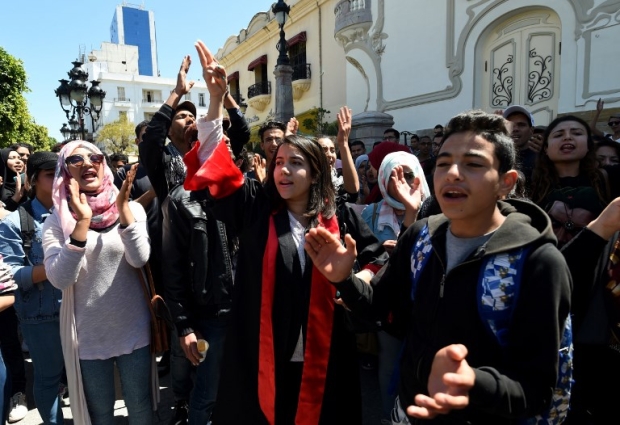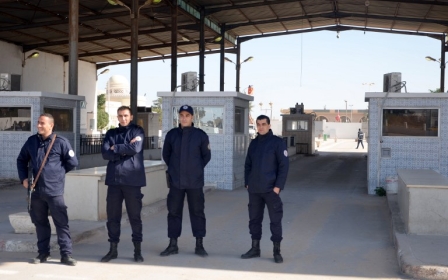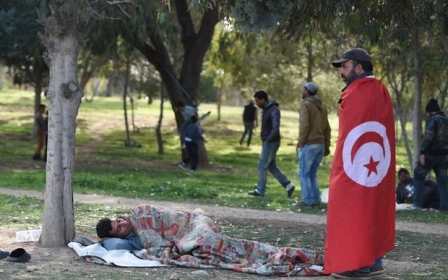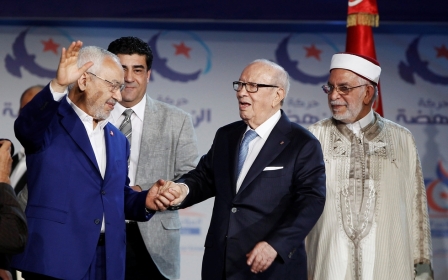Tunisia's deep structural inequality will take generations to unwind
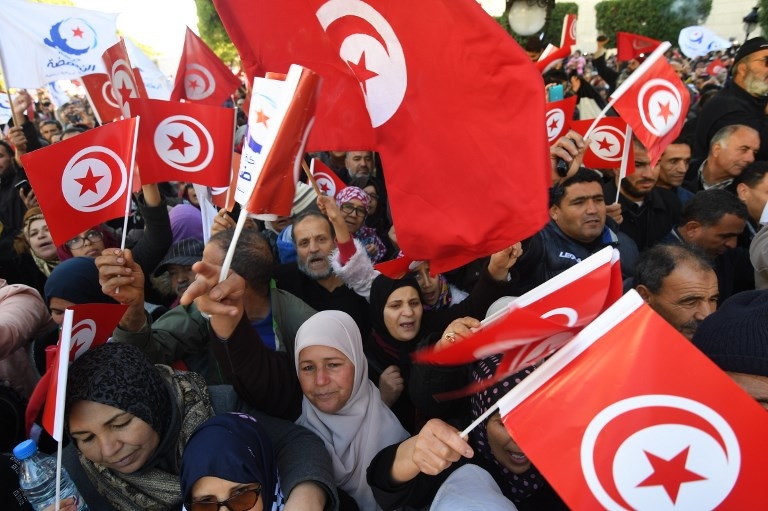
At a recent workshop, a young Tunisian politician stands in front of a flip chart, where he has drawn a platform meant to represent the new "21st-century economy". It is held up by multiple pillars: transparency, digital education, internet connections, and equality of opportunity.
Along the pillars, he has drawn little stick figures - Tunisia's youth - who, unshackled from the barriers of authoritarianism, are pulling themselves up the columns, to surf the waves of the global economy. "The wave is coming," he declares with a dramatic flair.
Legacies of neglect
The politician, who asked not to be identified, echoes what has become a common part of the narrative around post-revolutionary development and job creation in Tunisia. It is a powerful discourse: the myth of the level playing field. It recognises that the economic logic of authoritarianism has created deep structural obstacles and inequalities throughout Tunisia’s labour market, barring many young people with talent from jobs, investments and opportunities.
The common recommendation is to get rid of these barriers - to create new opportunities determined by performance, not patronage. "We need to level the playing field” is the chorus of the day, suggesting that the previously marginalised will pull themselves to the top.
There is a real danger that ... the exploited regions of yesterday will merely be reframed as the 'underperforming' regions of tomorrow - still disadvantaged, but now somehow responsible for their performance
It is a seductive sentiment - inherently optimistic, and couched in the energy and creativity of Tunisia’s buzzing co-working spaces. It is also hard to argue with: eliminating discrimination and creating opportunity in the Tunisian labour market is surely a worthy cause.
There is, however, a real danger in this narrative, as it underestimates how long legacies of neglect project themselves into the future. Every new, non-discriminatory opportunity created today will face huge demand and elicit fierce competition.
This competition, however, risks mirroring the inequalities of the past, as decades of neglect have structurally disadvantaged sections of Tunisian society with respect to all of the resources - social, cultural and economic - that they could muster to compete. And so, even in the absence of direct discrimination, many remain shut out.
Barriers for young Tunisians
The annual Baccalaureate exam, for example, is technically an equal opportunity for everyone; it is impartial and meritocratic. And yet, students' scores are tied to the quality of their local infrastructure, the educational level of their parents, their ability to pay for additional classes, and their freedom from having to work instead of attending classes.
As such, it should come as little surprise that the rates of students passing the exam in Tunisia's different governorates map precisely upon the country’s history of economic inequality.
In the most recent round, not a single coastal governorate scored lower than 33 percent, with rates over 40 percent in Sousse, Ariana and Monastir. On the other hand, not a single governorate in the interior scored higher than 29 percent, with rates under 25 percent in Gafsa, Kasserine and Jendouba. Even in a seemingly meritocratic institution, old inequalities are mirrored - and while the total unemployment rate in Tunisia increased by only 0.1 percent in the past year, it rose by more than 1.5 percent in the latter governorates.
None of this is to say that creating new opportunities, free of nepotism and corruption, is not important. But this must not lead to the assumption that decades of strategic economic neglect have ceased to exist and are not currently creating new barriers for young Tunisians. Otherwise, there is a real danger that in the world of the “level playing field”, the exploited regions of yesterday will merely be reframed as the “underperforming” regions of tomorrow - still disadvantaged, but now somehow responsible for their performance.
New policies are needed to address the structural inequalities that young Tunisians, especially in interior regions, are facing - and it is crucial to recognise that fully overcoming them will take decades, if not generations. The real playing field will remain uneven for the foreseeable future, continuing to disadvantage large sections of Tunisian society.
Affirmative action programmes
In this context, a strong argument can be made to learn from programmes aimed to address historical structures of discrimination in the US, India or South Africa. Affirmative action programmes in a variety of contexts have helped to not only make access to public institutions such as universities, hospitals and police easier for marginalised communities, but also to make these institutions more representative of the societies they serve.
At the heart of such programmes stands a recognition of the historical marginalisation of certain groups. While these programmes are commonly structured around ethnicity, they do not need to be, and have in other contexts been applied to religion, caste, or geographical areas.
In the context of geographical areas, the recognition of historical marginalisation has been an important element of Tunisia’s post-revolutionary narrative, as some of the country’s interior regions - most notably Kasserine - were able to file testimonies as victims of authoritarianism in the country’s transitional justice process.
Thinking about policy design that recognises this history could help to one day make the narrative of the “level playing field” a reality. Given the current political turmoil and partisan infighting, this seems a long way off.
In the absence of new initiatives, however, the "level playing field" risks becoming another discourse that marginalises a section of the country’s population by suggesting that in a newly democratic Tunisia, if they didn’t make it, they probably didn’t try hard enough.
- Max Gallien is a PhD candidate in international development at the London School of Economics, specialising in the political economy of North Africa. He holds an MPhil in modern Middle Eastern studies from the University of Oxford, and was a scholar in residence at Al-Akhawayn University in Morocco. Twitter: @MaxGallien.
The views expressed in this article belong to the author and do not necessarily reflect the editorial policy of Middle East Eye.
Photo: Tunisians wave their national flag as they gather on Habib Bourguiba Avenue in Tunis on 14 January 2018 to mark the seven-year anniversary of the uprising that launched the Arab Spring (AFP).
This article is available in French on Middle East Eye French edition.
New MEE newsletter: Jerusalem Dispatch
Sign up to get the latest insights and analysis on Israel-Palestine, alongside Turkey Unpacked and other MEE newsletters
Middle East Eye delivers independent and unrivalled coverage and analysis of the Middle East, North Africa and beyond. To learn more about republishing this content and the associated fees, please fill out this form. More about MEE can be found here.



